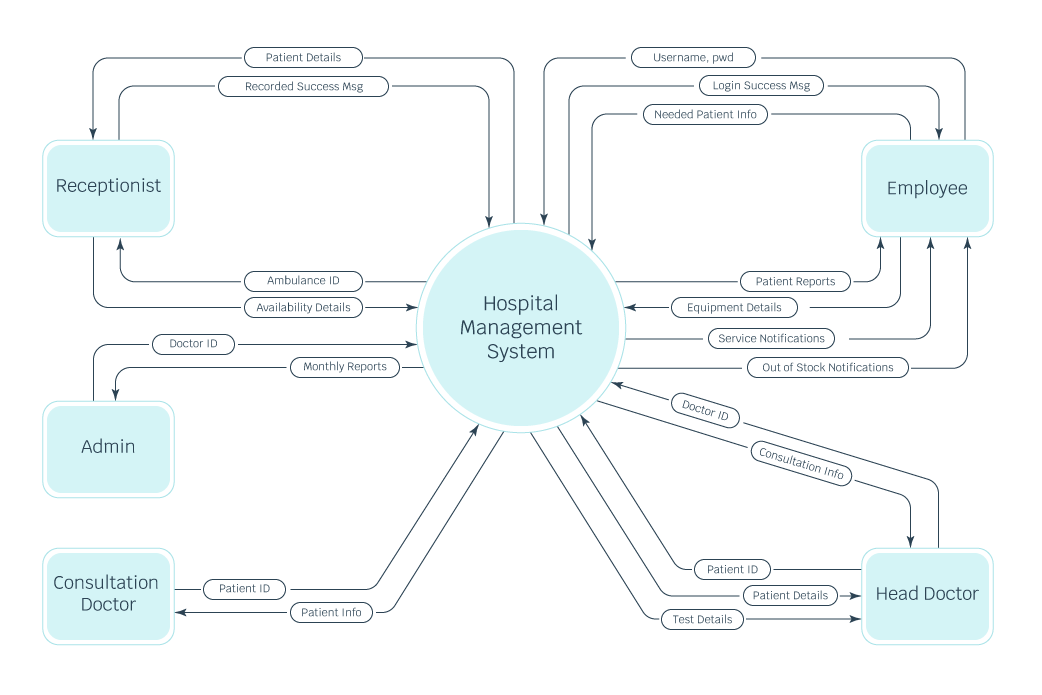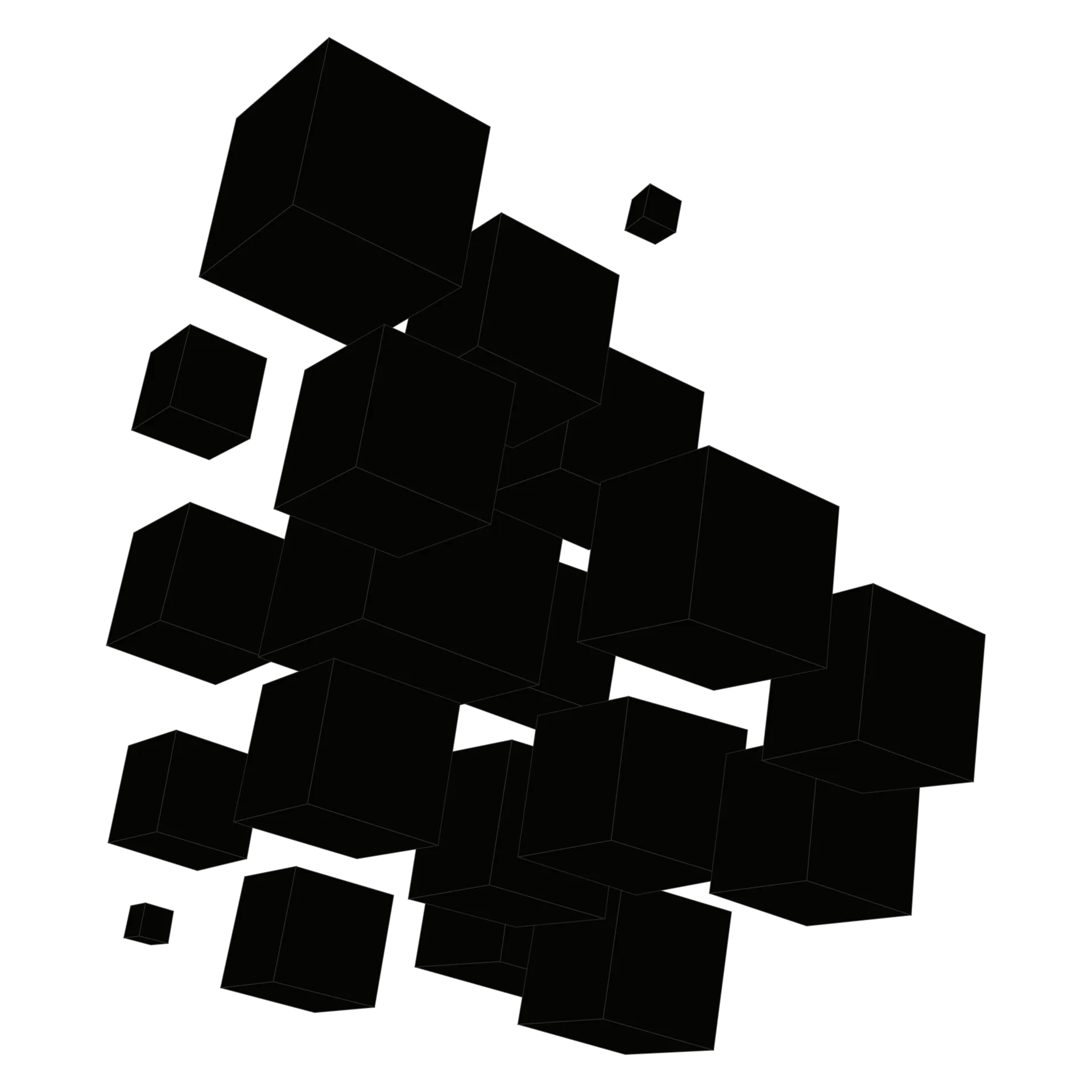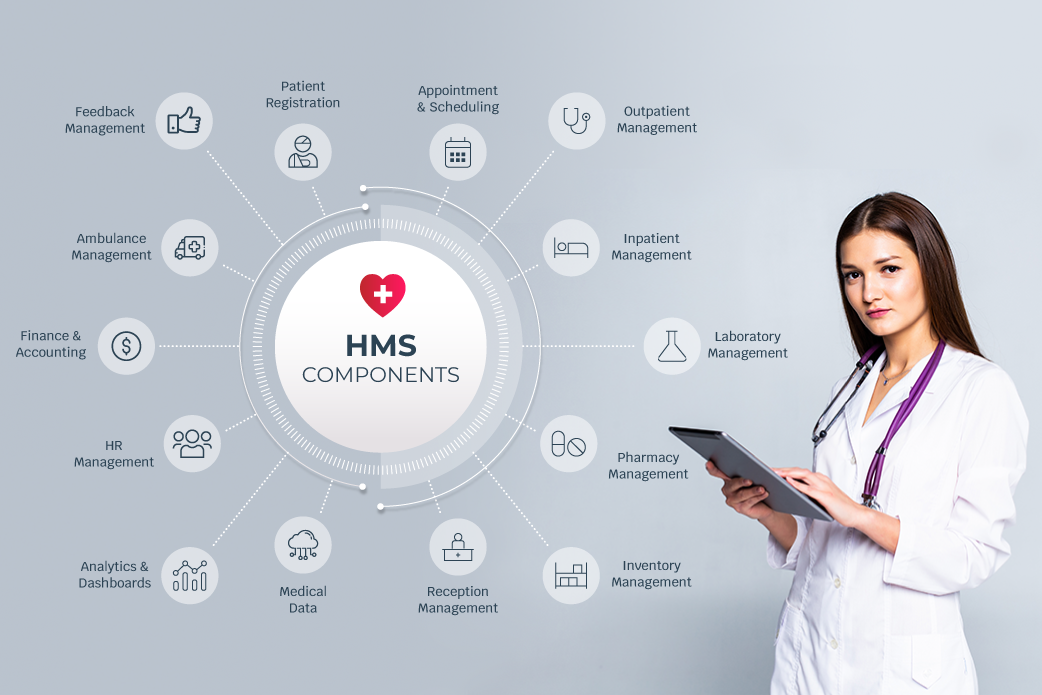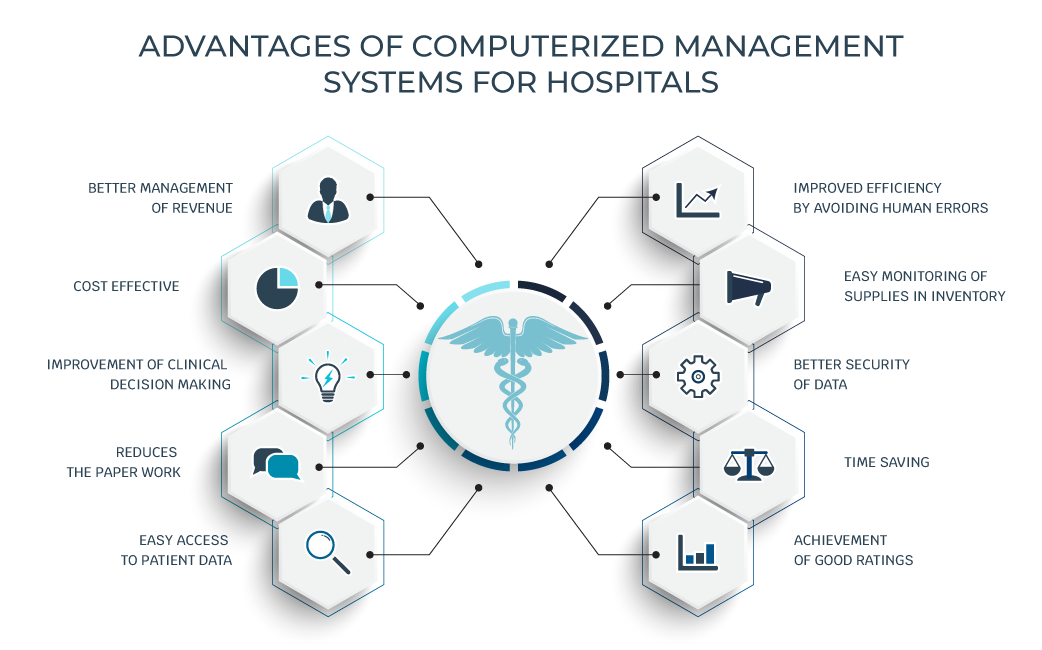Computerized Hospital Management System


Any hospital being a complex healthcare unit implies functioning of several departments in sync so that high quality patient care could be delivered timely. Hence, it excludes applying old and familiar management methods. Just like any large business organization, a hospital healthcare unit requires a complete management system to be flexible, data-based and innovative to function properly.
For instance, the traditional approach of maintaining paper-based medical records is not only bulky but burdensome in terms of time consumption. Moreover, it also potentially increases the risk of errors and inaccurate recording. Apart from inaccuracy, there adds a risk of losing time on searching for the record in need.
That is why almost all the hospital health care units are now welcoming the idea of implementing advanced management systems. A hospital management system is a great tool to solve all the problems in terms of recording and accessing the information.
An information management system, regardless of being employed in an organization or a healthcare unit, has now become increasingly advanced. This is because the computerized management systems (CMS) are designed to possess an ever-growing variety of capabilities. These capabilities have led to the widespread utilization of hospital management systems across all the healthcare industries globally.
What is a Computerized Hospital Management System?
At its core, HMS is a software that stores all information regarding the activities of a medical institution, including financing, administration, patient admission, doctors workload, appointments, and so on. The system also stores users’ medical data. The use of HMS allows medical institutions to optimize routine manual tasks, unload and organize workflow, reduce administrative costs and the human error factor.
In fact, the utilization of a similar level of the information management system has now become virtually universal and imperative among healthcare providers, health systems, and facilities.
What makes these computerized management systems so important for the healthcare industry?
Below, we discuss the benefits of a computerized hospital information system in the modern healthcare units and list CMS features of importance within development.
Why CMS Is Important in Healthcare
Computerized hospital management system in a healthcare unit has now significantly evolved into more digital healthcare infrastructure.
Modern healthcare infrastructures are digitized and responsible for managing, collecting and integrating the huge volume of financial, clinical and operational information. This information is generated daily in today’s healthcare system in order to enhance the effectiveness, safety, and efficiency of the system.
For instance, clinical management is constantly being improved by electronic health records, also known as EHRs. This helps in placing the comprehensive and immediate patients’ records at the fingertips of all the healthcare professionals.
The types of systems come as follows:
Patient administrative systems
Patient administrative systems assist in enhancing healthcare customer experience and improving patient engagement by providing online education to patients. By applying this system, patients are provided with reliable and efficient means of communication with medical professionals and have instant access to their personal health information. In particular, patient portals help users connect with doctors through the digital environment.
EHR Programs
EHR systems involve interactive assistance tools for clinical decision to alert providers on potential problems like medication interactions, critical lab values or allergies and send timely reminders on the clinical guidelines and preventive care.
Operational and Financial Management
This management system is aided by accounting software to support and facilitate healthcare billing systems, healthcare organizations, contract and healthcare policy management software, and intuitive and interactive inventory control systems, including several other software solutions.
Task-based systems
They imply that the same subject relates to multiple tasks: for example, the patient’s ID is being duplicated across each task. Task-oriented functions introduced in cloud-based CRM can help medical providers view and update the tasks and monitor the progress of each task up to completion.
How To Create Custom Healthcare CRM
All of the hospital management systems serve differently to different professionals and departments of a healthcare unit.
CMS in Hospital Management
To handle a multi-specialty hospital, medical professionals require effective management solutions to prevent excessive time and resource consumption.
Advanced functionalities of CMS make them easily accessible for any authorized person (a patient, doctors, staff, etc.). Additionally, CMS can be used for storing information pertaining to activities of all the participants of medical care process.

In particular, a single computerized and quality management system for hospitals serves the following purposes.
Patient Information
The system can be used to register new patients. When you employ an electronic management system, it stores all the relevant and basic medical details of the patient. You can also record the patient’s contact information including photos as identity proof in case of facing any medical-legal case or fraud.
Statistical Reports
The complete data in a computerized information system is integrated. It can be analyzed whenever needed. This assists in keeping a statistical database so that it can be used internally in the hospital or can be submitted to the administration. The administration can use this data to summarize hospital expenses while evaluating all the necessary and unnecessary expenditures.
Supplies Control
A quality hospital management system also helps to maintain inventory, the supplies stock in the hospital such as medication, surgical instrument, stationery, laboratory supplies, staff supplies and others. This inventory record ensures that the administration keeps a quick look in terms of usage and proper control of the wastage of available supplies.
Occupancy
When you employ an efficient computerized management system in your hospital, you can have a quick look to check the beds/rooms available so that patients can be accommodated and transfer from one place to another conveniently. By keeping this data regularly updated, you can easily keep a track of incoming patients, admitted or discharged patients. The patient data management system can also store information about the availability of the operation theaters along with their schedule, to help staff book and allow the vacant rooms or theaters accordingly.
Schedules
A hospital management system can also be used to list the available doctors and their relevant schedules. It contains the emergency numbers of the doctors. Even doctors can check the schedule and coordinate with other doctors. The record can also be kept in terms of available medicine for a particular disease so that every doctor can stay updated and use an alternative, whenever needed and avoid delay. Not to mention, a quality management system improves the coordination between the doctor and patient both hassle-free and easy.
All of these are some of the sections of a hospital setup that frequently utilize the computerized management system to ensure smooth functioning of the hospital. A computerized information system provides significant advantages to all the sections of the hospital. It has replaced the traditional and manual methods of information processing and incorporates more fast and accurate means to eventually benefit patient care.
How to develop a hospital management system
When creating a hospital management system, an experienced custom software development company breaks down the complex hospital management system into project modules to ensure high quality results and effectiveness of the system across any domain.
How to create a Hospital Management System?
For convenience, the creation process is divided into separate modules, which are created according to their importance, namely:
1. Patient management module
2. Appointment module
3. Facility management module
4. Inventory management module
5. Staff Management module
6. Accounting module
7. Insurance module
8. Medicine management module
9. Lab management module
10. Report management module
11. Helpdesk support module
 Patient management module
Patient management module
The main purpose of the module is to enable patients to have a hassle-free experience when dealing with healthcare providers. It can generate the unique ID for a patient upon registration to facilitate tracking of medical history.
Thus, the features in this module patient registration, storing information on treatment, easy access to medical history, creating medical reports.
Appointment module
This module of the hospital management system is aimed at managing the schedules and appointments that enables patients to get access to available doctors as well as laboratory services. The features in this module include monitoring appointment status and alerts on updates by sending text messages or emails.
Facility management module
This module assists in monitoring hospital room availability and tracking the occupancy, managing the administrative documentation pertaining to admission and discharge summary details. The features in this module include monitoring functions and integrating them in schedule and accounting modules.
Inventory management module
Implementing automated inventory management, healthcare providers and hospitals can easily recover the expenses by controlling the cost of medical supplies and allocating them properly. The features in this module include a database on hospital stocks, information on reorder levels and alerts on running out of stock.
Staff Management module
This module signals of availability of nursing and ward staff and offers solutions of effective time and resource management. The features in this module include instant access to the patient administration system, notifications on patient admission, discharge, diverse charts providing information on the patient’s current condition, etc.
Accounting module
This module implies finance management and ensures billing for consultancy. Services implemented through this module includes features of access to patient management for enabling patients to get services and pay for nursing, laboratory tests, X-ray, prescribed medicines and delivered procedures, etc.
Insurance module
The insurance module assists in verification of the patient eligibility for processing the admission or the settlement of billing. It is supposed to be integrated with other modules to retrieve the discharge summary or financial data instantly. Furthermore, the insurance module usually stores such patient insurance details as policy number, the name of the insurance company, and policies.
Medicine management module
In the hospital management system, it is vital to control and monitor drug expiration dates in the stock to plan the medicine delivery. The features in this module also include access to details of medical history of the patient including the medicine prescription history.
Lab management module
This module assists in recording and distributing test-related information. Practically, it stores and manages patient medical tests and reports including those issued by laboratory and accounting departments. The personnel must have instant access to test reports to further print or email them across any device.
Report management module
The features in this module embrace analytics and dashboards including channels that help to gather patient feedback. Report management module of hospital management system differentiates reports for various groups of medical professionals in various dashboards. Additionally, it can assist in automatic sending reports by email at pre-scheduled time.
Helpdesk support module
Helpdesk support is aimed at giving timely feedback to patients requests and providing full patient support.
CMS Advantages in Healthcare
While incorporating a quality computerized management system, hospitals get the following benefits:
Assistance in Higher Ratings
Most of the insurance and medicare companies heavily rely on computerized data, which makes the wide functionality of a computerized management system a critical quality indicator. Hospitals that can boast of high quality CMS stand out from competitors and enjoy good reputation in the health industry.
Facilitation of Routine
Data management is one of the major reasons to employ a computerized management system in a hospital facility. When you facilitate your hospital data management by employing an efficient and advanced computerized management system, it records and retrieves information while eliminating duplication or ambiguity in the data.
Decrease of Error Risks
When you employ a computerized management system for a hospital, it eliminates the possible chance of mistake or error completely. With a proper management system in place, you can easily avoid the lawsuits or compliance issues – the major hassles for any hospital setup. If you think that the integration of a computerized management system is a heavy investment, it’s worth it. With this great management tool, you can have all the information you need, at your fingertips.
Improved Efficiency
When a hospital integrates a quality computerized management system, the unit will never face adversities like delays, missing records, or even duplicate records. All of this is quite common to face when you manage data manually. With CMS the data remains well organized and as it helps in the accurate functioning of all the departments including finance. For instance, finance department can easily access the patient’s record and bill them accordingly and accurately for availing the medical services.
Since a management system aims to automate all the sections of a hospital and its involved processes, it reduces the need to employ extra staff.
CMS FOR EFFECTIVE HOSPITAL MANAGEMENT
Compared to businesses focused on selling and purchasing, the hospital, operating on more complex data including sensitive personal information, requires management systems of highest quality to prevent the risk of data loss and ensure security.
Conclusively, a computerized management system is a must-have in today’s healthcare industry. It is an invaluable tool when it comes to reporting of regulatory compliance, productivity monitoring, and financial performance. These systems will help you stand out in the industry and take a step ahead of all other hospitals, nipping at your heels while they strive to break into the field.
If you are thinking of custom CMS for hospitals, you will need high-quality solution that can be implemented by a reliable healthcare software development company with a strong project background and portfolio.
The experts in our company will be happy to assist in requests you may have. The same goes for the consultations on your project in regard to time of its implementation and pricing information. Feel free to contact us [email protected].
Build your ideal
software today

 Patient management module
Patient management module
